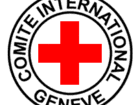A smartphone that can take the pulse of a user just by looking at his or her face was unveiled in Japan on Monday.
Technology giant Fujitsu plans to put the invention to practical use within a year, enabling people at work or at home to track their health and collect data for analysis without wearing special devices.
 Full Story
Full Story
The Swiss government said Friday that it was marking the 150th anniversary of the Red Cross by providing funds to train 150 of the aid workers who form the organisation's backbone.
Swiss Foreign Minister Didier Burkhalter made the announcement in a speech at a conference dedicated to Switzerland's humanitarian operations, a government statement said.
 Full Story
Full Story
"I don't have anything," said Asmaa with a sigh as she stepped out of the mobile clinic offering free AIDS tests in Sale, a conservative city in Morocco where the veiled young woman lives.
Around 29,000 people are infected with HIV in a country of 33 million, according to estimates by the Pan African AIDS Organisation (OPALS), a relatively low figure compared with other Arab countries.
 Full Story
Full Story
Millions of people remain dependent on external food aid in North Korea where nearly 28 percent of children under five are stunted from malnutrition, a U.N. official has said.
Desiree Jongsma, U.N. resident coordinator in North Korea, said two thirds of its 24 million population were chronically food insecure although timely imports had contributed to avoiding a crisis this year.
 Full Story
Full Story
Nearly 330 million abortions have been performed in China in the 40 years since it first implemented measures to limit population growth in the world's most populous nation, official data showed.
China has announced structural changes to its family planning system which oversees the controversial one-child policy during the ongoing annual meeting of the national legislature in Beijing.
 Full Story
Full Story
A small French study of 14 HIV patients who have remained healthy for years after stopping drug treatment offers fresh evidence that early medical intervention may lead to a "functional cure" for AIDS, researchers said Thursday.
The research, published in the U.S. journal PLoS Pathogens, comes on the heels of a report last week that a baby in Mississippi appeared to be cured of HIV after aggressive antiretroviral drug treatment delivered within 30 hours of birth.
 Full Story
Full Story
The U.S. Food and Drug Administration said Thursday it was reviewing results of unpublished studies hinting at higher risks of ulcers and pancreatic cancer for users of certain anti-diabetes drugs.
The FDA said pancreatic tissue samples taken from a small number of patients who died had revealed inflammation and cellular changes that often precede cancer.
 Full Story
Full Story
With its bustling streets, shops and busy restaurants, little suggests that ten years ago Amoy Gardens was on the front line of Hong Kong's battle with a virus that caused a global health crisis.
The estate became a beleaguered symbol of the city's struggle to contain an outbreak of Severe Acute Respiratory Syndrome (SARS), named and declared a "worldwide health threat" by the World Health Organization on March 15, 2003.
 Full Story
Full Story
"Fighting cancer is a daily battle," says Camelia Dima, whose daughter suffers from a malignant tumour. But in Romania, long waiting lists and a shortage of drugs make the fight even harder.
"Europe is characterized by worrying inequalities in cancer control and care", the European Commission recently warned.
 Full Story
Full Story
Injected with a fluorescent protein to make them glow bright red, laboratory mice are helping Czech scientists better understand the causes behind intestinal cancers and skin diseases while leaving the rodents unscathed.
A research group at the Institute of Molecular Genetics at the Czech Academy of Sciences is using proteins obtained from sea organisms like coral to light up mice and observe cell development under their skin without having to kill them.
 Full Story
Full Story



